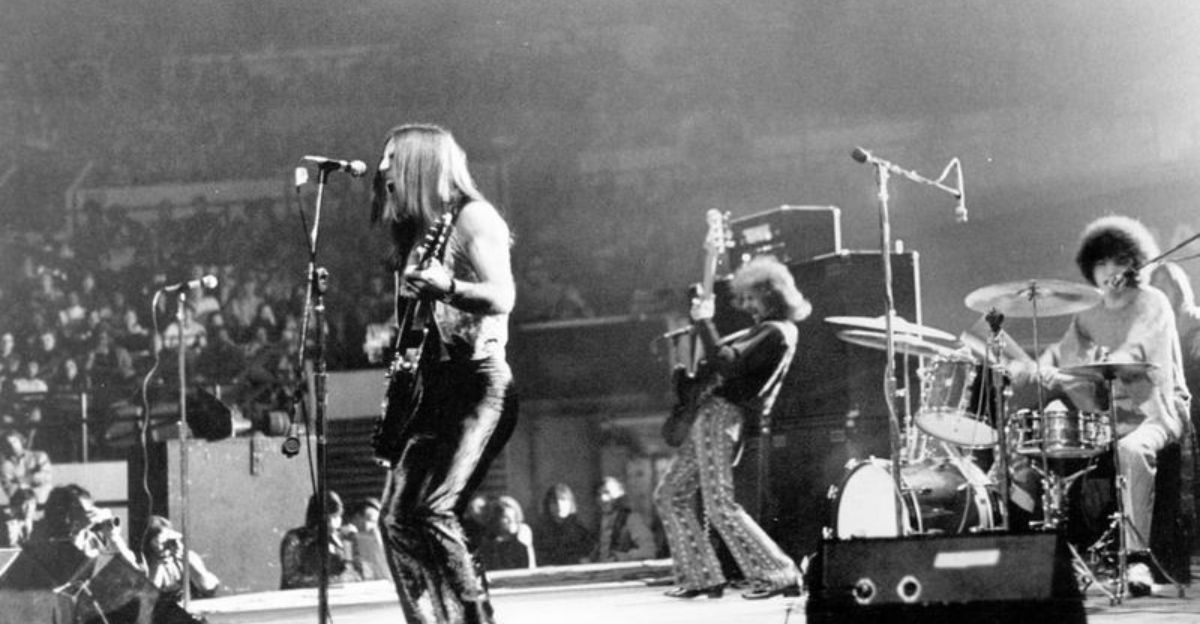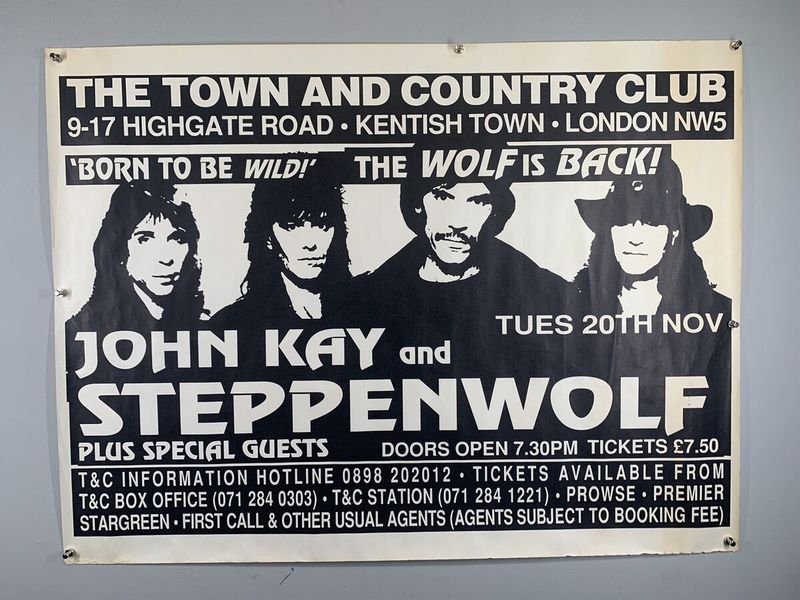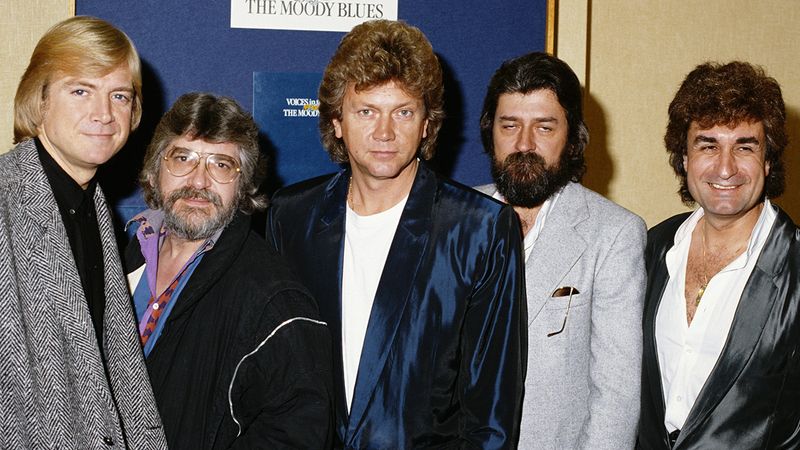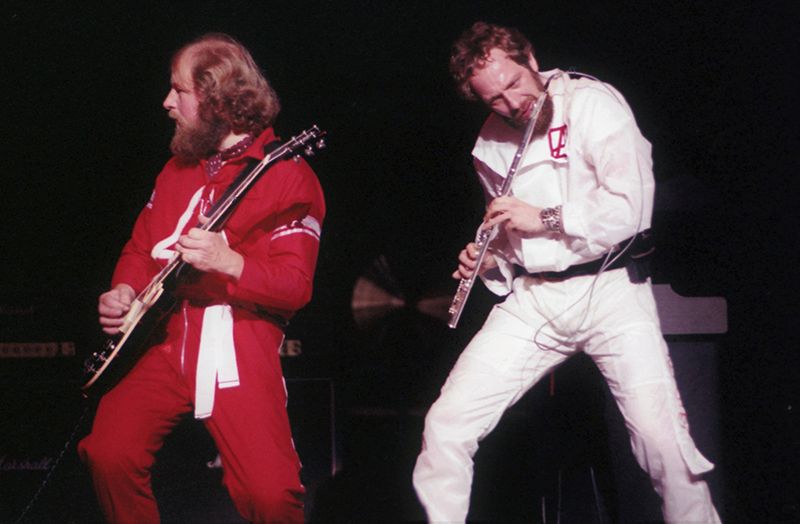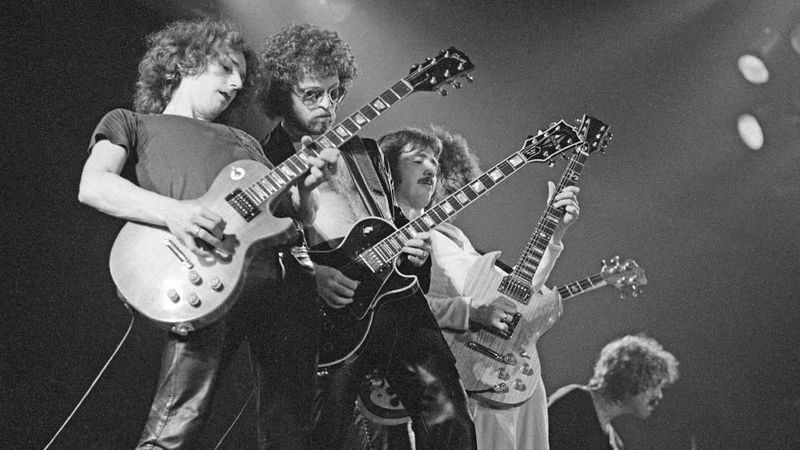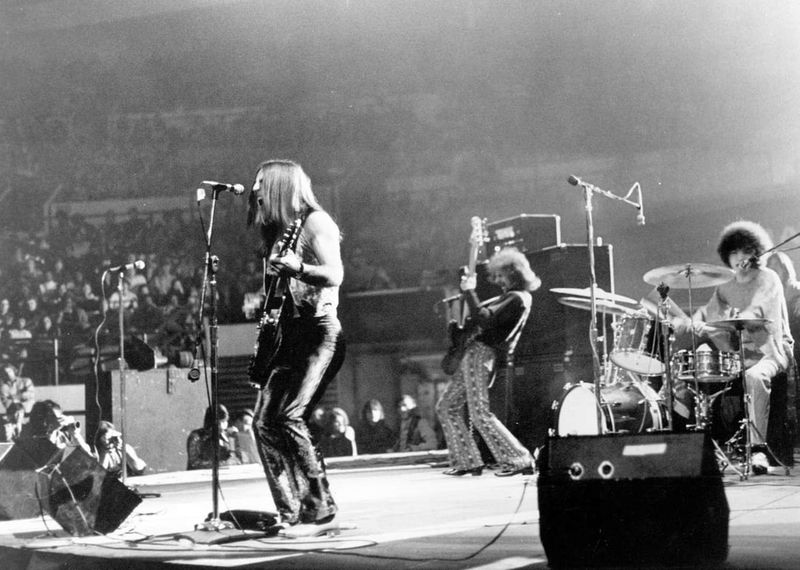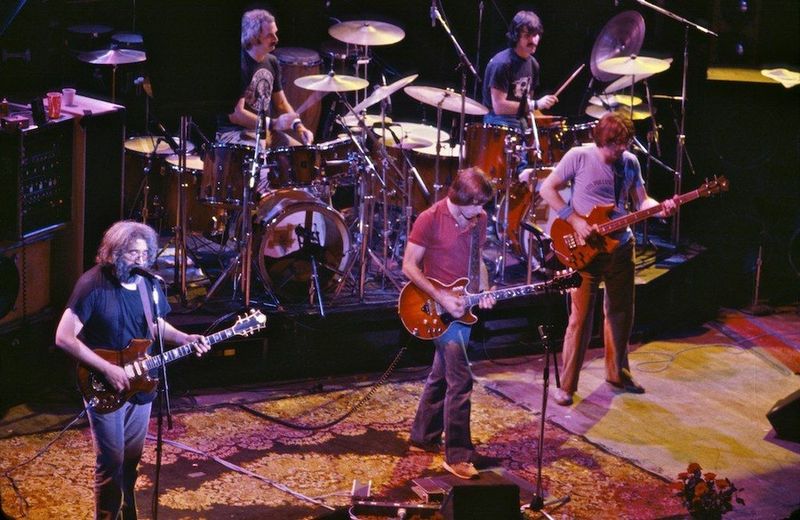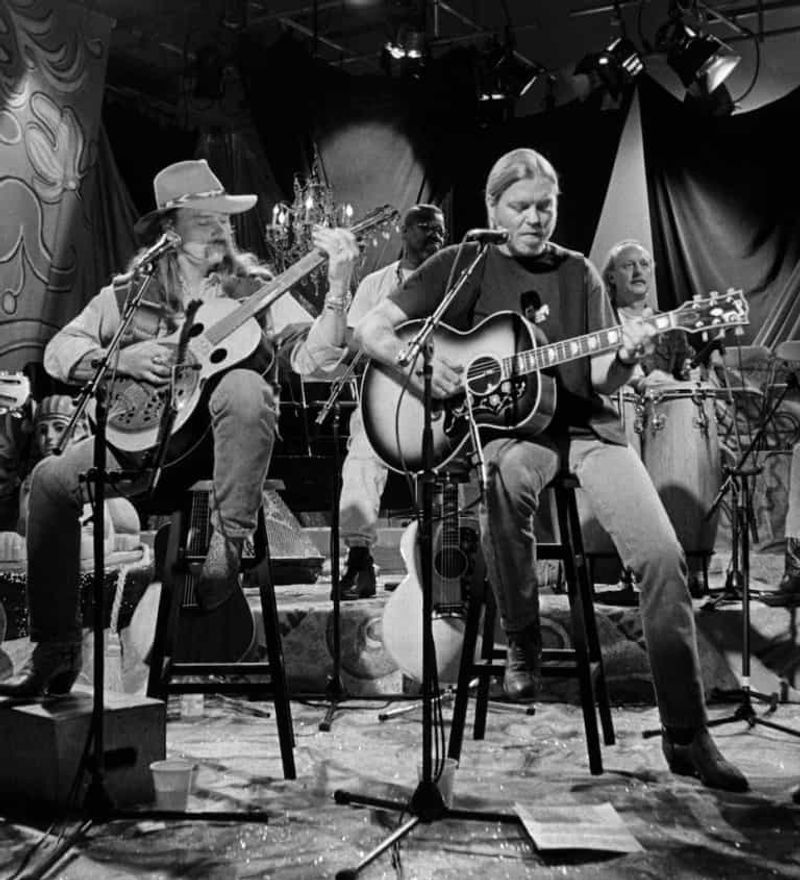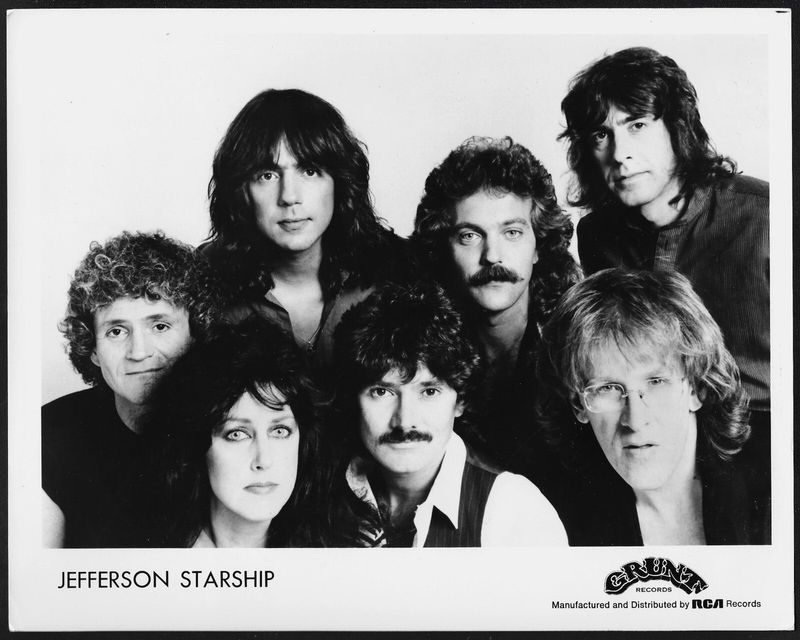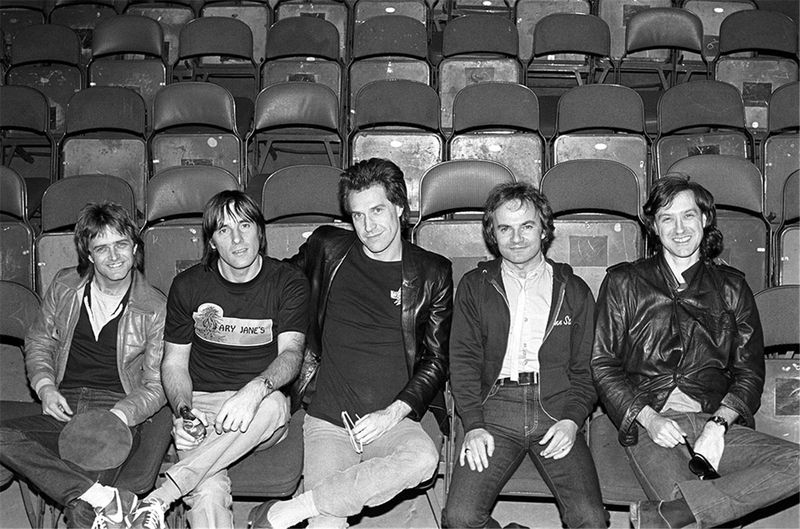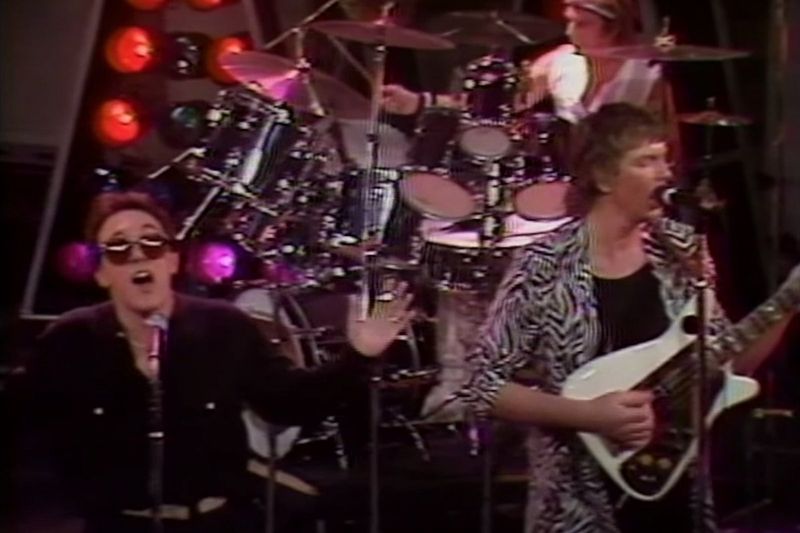The 1980s were dominated by synth-pop, new wave, and glam metal, leaving many classic rock artists struggling to stay relevant. While some legends adapted successfully, others faded from the spotlight. Here are 15 classic rock acts that struggled the most during the ’80s.
1. The Guess Who
After dazzling audiences in the 1970s with hits like “American Woman,” The Guess Who struggled to maintain their footing in the ’80s. Plagued by lineup changes, the band experienced a decline in creativity and a reduction in radio plays.
Their quest to stay relevant was hindered by the evolving music scene dominated by synth-pop and new wave. Despite their efforts, their rock sound was overshadowed, leading to a quieter decade for the band.
Their legacy, however, remains influential in Canadian rock history.
2. Steppenwolf
Known for their anthem “Born to Be Wild,” Steppenwolf faced an uphill battle in the ’80s. After disbanding in 1972, their reunion didn’t resonate well with the new music trends.
Their bluesy hard rock was a stark contrast to the synth-heavy popular sounds, making it difficult to attract the same fanfare. The band’s attempt to recapture their ’60s magic was largely unsuccessful.
Despite these challenges, their influence on rock and motorcycle culture remains significant to this day.
3. The Moody Blues
Pioneers of prog-rock, The Moody Blues found the ’80s to be a challenging era. Their orchestral, symphonic style was a mismatch for the synth-driven music scene that prevailed.
While they did produce a few minor hits, they struggled to replicate the massive success of their ’70s work. The shift in musical taste left them somewhat adrift.
Nonetheless, their contributions to music, with their intricate compositions, continue to inspire musicians across genres.
4. Jethro Tull
Jethro Tull, famous for their flute-heavy prog-rock, faced a tumultuous ’80s. Their most notable moment was winning the first Hard Rock/Metal Grammy in 1989, a decision that left fans and critics baffled.
The band’s style was increasingly out of sync with the mainstream, as they battled to maintain relevance amid the rise of new music genres.
Despite these challenges, Jethro Tull’s intricate and theatrical sound remains a unique contribution to rock history.
5. The Doobie Brothers
The Doobie Brothers, known for their harmonious rock, faced a lukewarm reception in the ’80s. With Michael McDonald’s soulful influence in the late ’70s, the band struggled to adapt to the changing musical landscape.
Their output during this decade lacked the punch of their earlier hits, leading to fewer chart successes and radio plays. The shift to synthesizers and electronic sounds overshadowed their more organic style.
Nevertheless, their earlier work continues to resonate with fans of classic rock.
6. Blue Öyster Cult
Despite a string of ’70s hits, Blue Öyster Cult struggled to maintain their momentum in the ’80s. Known for tracks like “Don’t Fear the Reaper,” they found it hard to compete with the rising metal scene.
Their unique blend of hard rock and enigmatic lyrics was overshadowed by the glam metal bands that dominated the charts. The band’s distinct sound did not align with the era’s musical preferences.
Yet, their influence persists, especially in the realms of rock and heavy metal.
7. Grand Funk Railroad
Grand Funk Railroad, famous for their high-energy blues rock, stumbled in the ’80s. Their sound, once a staple of the ’70s, didn’t translate well in the MTV-driven era.
A brief reunion in 1981 failed to reignite their earlier successes. The band’s straightforward rock style seemed out of place amid the flashy visuals and synthesized music dominating the decade.
Despite this, their earlier work remains celebrated among classic rock enthusiasts, marking them as pioneers of the genre.
8. The Steve Miller Band
The Steve Miller Band, creators of catchy hits like “The Joker,” found the ’80s less forgiving. Their output during this decade was largely forgettable, lacking the innovation that marked their ’70s success.
With little radio and MTV support, their music faded from the forefront. The band’s classic rock style did not resonate with the electronic and pop trends of the time.
Nonetheless, their earlier hits continue to be celebrated and remain staples of classic rock radio stations.
9. The Grateful Dead
While The Grateful Dead maintained a devoted following in the ’80s, their jam-band style was far from the decade’s mainstream trends. Their improvisational concerts were legendary but not widely commercial.
Their music didn’t fit the MTV era’s flashy demands. However, by the late ’80s, they experienced a resurgence, capturing new fans with their unique sound.
The Dead’s influence on music and culture endures, with their live performances still celebrated by fans worldwide.
10. The Allman Brothers Band
The Allman Brothers Band faced significant challenges in the ’80s. After disbanding in 1982, their brief reunion was marred by internal conflicts and a lack of commercial success.
Their Southern rock style clashed with the prevailing trends of the time. Despite these issues, their musicianship and dedication to blues-influenced rock set them apart.
The band’s legacy as pioneers of Southern rock remains, influencing countless musicians across genres and generations.
11. Jefferson Starship
Transitioning from Jefferson Airplane, Jefferson Starship encountered a turbulent ’80s. Their inconsistent output struggled to gain traction as they shifted between rock and pop styles.
The band’s attempts to find a commercial hit often fizzled, as the music industry evolved rapidly around them. Despite this, their earlier revolutionary work still echoes in the annals of rock history.
Their adaptability, while sometimes a hindrance, showcased their willingness to explore new musical territories.
12. The Kinks
Despite Ray Davies’ songwriting brilliance, The Kinks struggled to regain their ’60s/’70s fame in the ’80s. The decade brought only minor hits like “Come Dancing,” amidst a sea of more popular genres.
Their quintessentially British rock sound was overshadowed by the era’s musical shifts. Despite the challenges, their influence on rock and pop remains undeniable.
The Kinks’ legacy endures, inspiring artists with their witty lyrics and pioneering sound.
13. Yes
As prog-rock began to wane, Yes faced a new challenge in the ’80s. Their albums leaned into pop-rock, alienating some old fans while failing to attract enough new ones.
The band’s complex compositions and elaborate stage shows struggled to find a place in the mainstream. Despite these obstacles, they maintained a core following.
Yes remains a beacon of progressive music, continuing to captivate audiences with their intricate soundscapes and artistic innovation.
14. Traffic
Though Traffic briefly reunited in the ’80s, their jazzy rock style felt out of place in the decade. The band’s music, characterized by complex arrangements, didn’t align with contemporary trends.
Their reunion lacked the impact of their earlier work, leading to another quiet disbandment. Despite this, Traffic’s innovative sound continues to influence artists across genres.
Their legacy as trailblazers of jazz-rock fusion remains intact, even as the music landscape has evolved.
15. Ten Years After
Famous for their electrifying Woodstock performance, Ten Years After struggled to adapt to the ’80s. Their blues-rock sound, once riveting, seemed outdated among the decade’s new musical styles.
The band’s efforts to stay relevant were met with limited success, as they couldn’t capture the same energy that marked their early days.
Despite these challenges, their influence on rock music remains significant, celebrated for their innovative guitar work and powerful performances.
